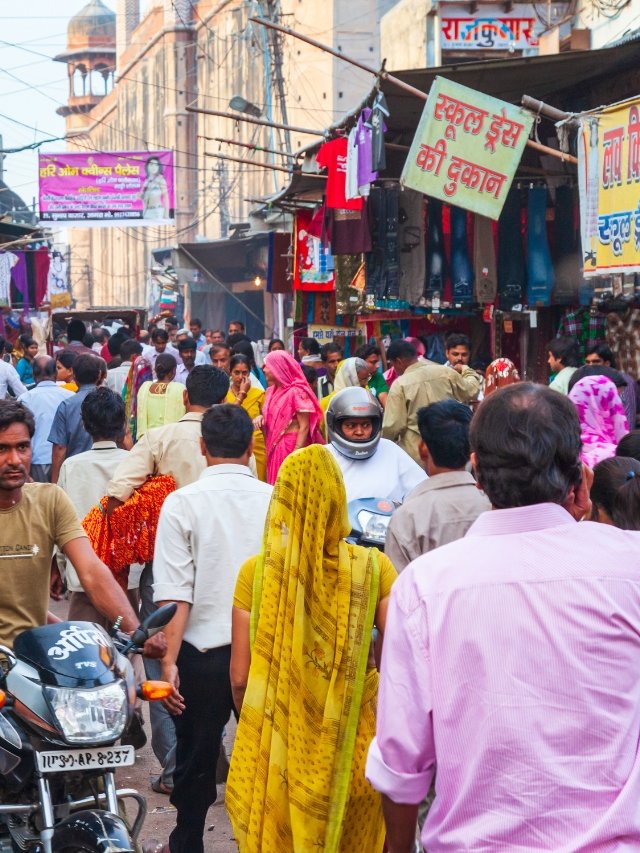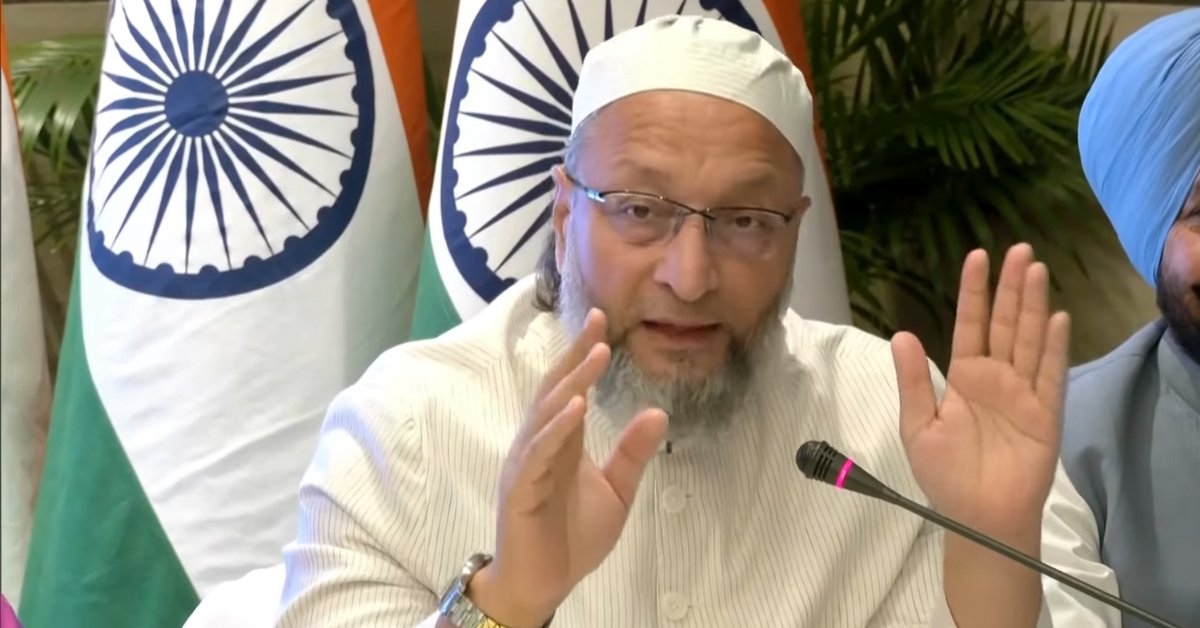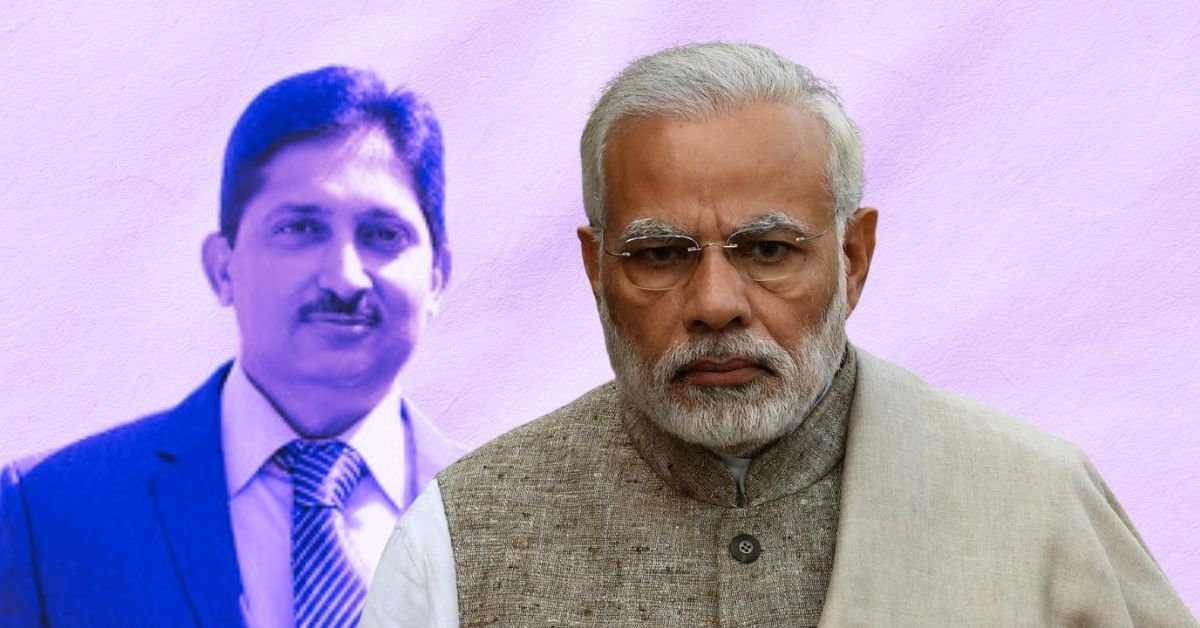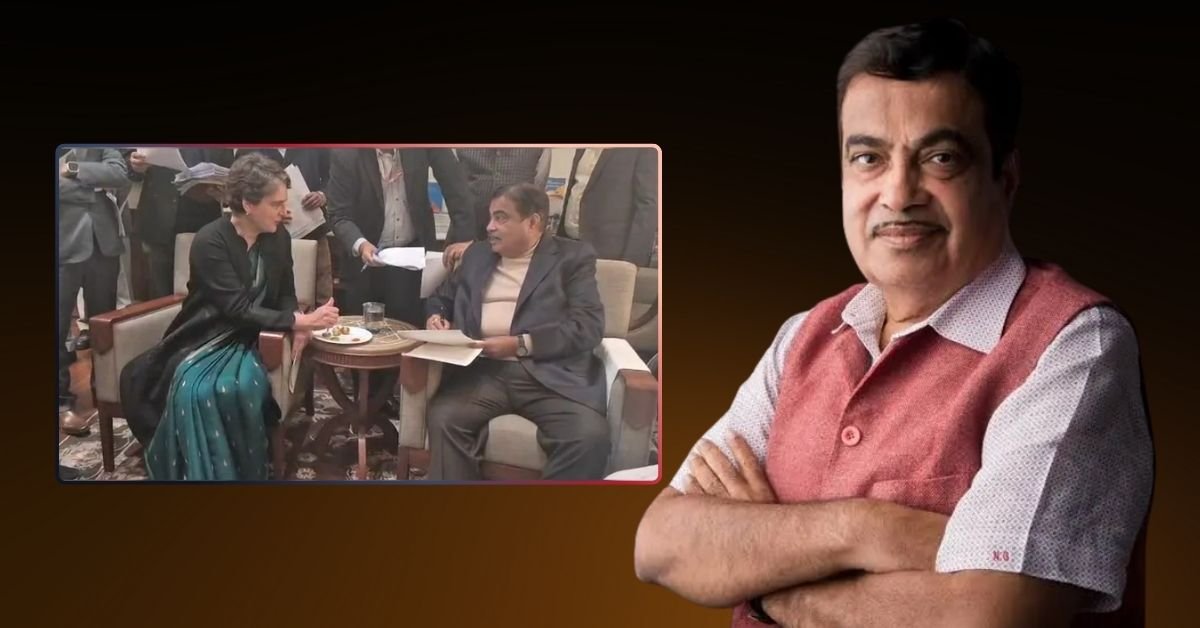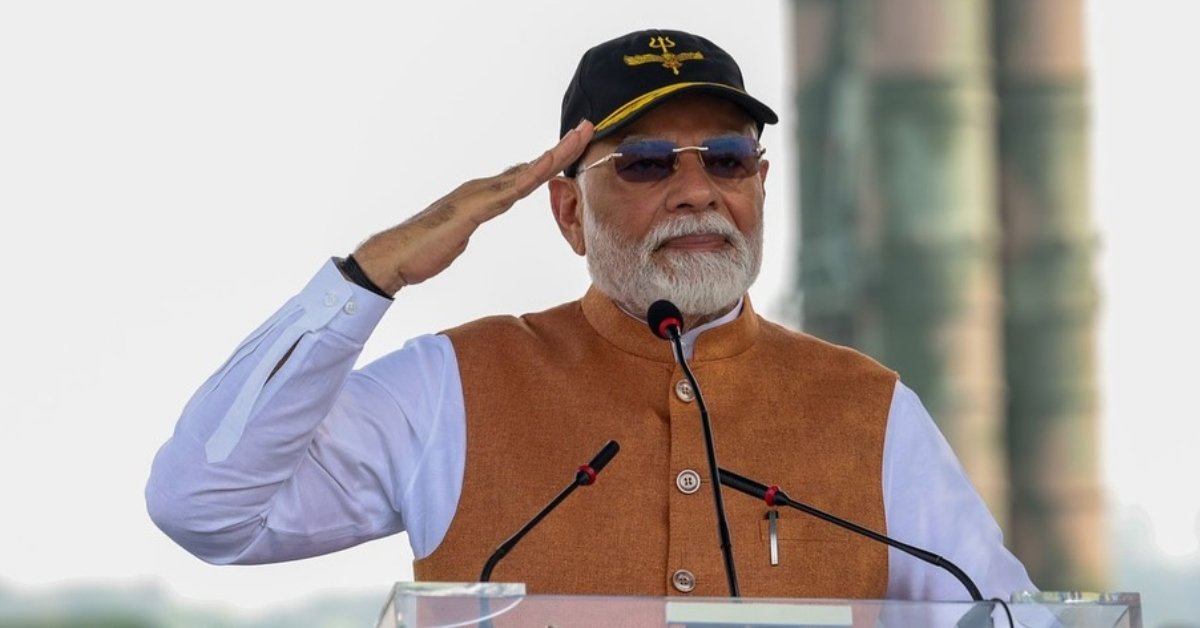Table Of Contents
Asaduddin Owaisi’s Kuwait Speech
When Asaduddin Owaisi, the outspoken leader of the All India Majlis-e-Ittehadul Muslimeen (AIMIM), took the stage in Kuwait on May 26, 2025, he did not hold back.
As part of an Indian parliamentary delegation, Owaisi delivered a powerful speech that ripped into Pakistan’s role in sponsoring terrorism, called for global action, and left no room for ambiguity.
His words, delivered with his signature intensity, resonated with the Indian diaspora in Kuwait and sent a clear message to the world: Pakistan’s support for terrorism must end.
At THOUSIF Inc. – INDIA, we dive deep into what Owaisi said, why it matters, and the broader context of India’s fight against cross-border terrorism. Let us break it down.
The Context: Why Was Owaisi In Kuwait?
Owaisi’s speech came at a critical time.
On April 22, 2025, a horrific terror attack in Pahalgam, Jammu, and Kashmir claimed the lives of 26 tourists.
The attack, attributed to The Resistance Front (TRF), a front for the UN-proscribed Lashkar-e-Taiba (LeT), shocked India and prompted a swift military response known as Operation Sindoor.
This operation targeted nine terror camps in Pakistan and Pakistan-occupied Kashmir (PoK), showcasing India’s zero-tolerance policy toward terrorism.
In response, India launched a global diplomatic offensive, sending seven multi-party delegations to 33 countries to expose Pakistan’s terror links and rally international support.
Owaisi, part of the delegation led by BJP MP Baijayant Panda, was in Kuwait to engage with the Indian diaspora and local officials.
His speech was a key part of this mission, aiming to counter Pakistan’s narrative and highlight India’s resolve.
What Did Owaisi Say? Key Themes And Quotes
Owaisi’s speech was a masterclass in blending sharp criticism with diplomatic finesse.
He tackled Pakistan’s role in terrorism head-on, addressing financial misconduct, leadership failures, and the misuse of religion.
Here is a detailed look at the key themes he covered:
| Theme | Points | Notable |
|---|---|---|
| Pakistan’s Role in Terrorism | Labelled Pakistan as an “aggressor” and condemned its support for terror groups like TRF, responsible for the Pahalgam attack. | “This problem emanates from Pakistan only. Unless and until Pakistan stops promoting, aiding, and sponsoring these terrorist groups, this problem won’t go away.” |
| FATF Greylisting | Urged Kuwait to support reinstating Pakistan on the FATF grey list to curb terror financing, citing misuse of a $2 billion IMF loan. | “Pakistan must be brought back to the FATF grey list. The importance of the FATF grey list is that there will be huge scrutiny on that nation when you do money transactions.” |
| Criticism of Leadership | Mocked Pakistan’s Prime Minister Shehbaz Sharif and Army Chief Asim Munir, calling them “stupid jokers” for using a fake photo from a 2019 Chinese drill to claim success in Operation Bunyan Al Marsus. | “These stupid jokers want to compete with India; they had given a photograph of a 2019 Chinese army drill as their operation.” |
| Misuse of Religion | Rejected Pakistan’s use of Islam to justify terrorism, emphasizing India’s larger and “more sincere” Muslim population. | “Indian Muslims are more… Pakistan’s claims on religion are bakwas [nonsense]. Don’t take them seriously, not even with a pinch of salt.” |
| Global Action | Called for international cooperation to curb Pakistan’s terror networks, describing terrorism as a “regional cancer.” | “It is in the interest of the world that terrorism being perpetrated and promoted by Pakistan comes to an end.” |
Pakistan As An Aggressor, Not A Victim
Owaisi was unequivocal in calling out Pakistan’s role in terrorism.
He listed a series of attacks linked to Pakistan, including the 2008 Mumbai blasts, the 2001 Jammu and Kashmir Assembly bombing, the 2019 Pulwama attack, and the 2016 Pathankot attack.
By presenting this history, he aimed to dismantle Pakistan’s narrative of being a victim of terrorism.
Instead, he positioned Pakistan as the aggressor, actively sponsoring groups like TRF to destabilize India.
He also highlighted India’s notifications to the UN 1267 Sanctions Committee in December 2023 and May 2024, which identified LeT and TRF as Pakistan-based groups planning attacks.
This evidence, Owaisi argued, shows Pakistan’s deep ties to terror networks, including their operations near military cantonments, as revealed by cyber tracking of TRF’s propaganda.
Pushing For FATF Greylisting
One of Owaisi’s most significant demands was for Pakistan to be reinstated on the Financial Action Task Force (FATF) grey list.
The FATF, a global watchdog, monitors terror financing and money laundering.
Pakistan was delisted from the grey list in 2022 after four years, but Owaisi argued that its continued support for terrorism warrants renewed scrutiny.
He specifically flagged a $2 billion IMF loan to Pakistan, warning that the Pakistani military could misuse such funds to support terror groups.
“Pakistan uses hawala and money laundering to fund terrorists,” he said, urging Kuwait to back India’s call for stricter financial oversight.
This demand aligns with India’s broader strategy to isolate Pakistan economically and diplomatically.
Mocking Pakistan’s Leadership
Owaisi’s speech was not just serious; it also had moments of biting sarcasm.
He aimed at Pakistan’s leadership, particularly Prime Minister Shehbaz Sharif and Army Chief Asim Munir.
He ridiculed their attempt to claim military success through Operation Bunyan Al Marsus, pointing out that a photograph presented as evidence was actually from a 2019 Chinese army drill.
“These stupid jokers want to compete with India,” he quipped, adding that such deception shows Pakistan’s lack of credibility.
This jab highlighted Pakistan’s propaganda failures and underscored Owaisi’s knack for delivering memorable soundbites.
Rejecting Religious Justifications
Perhaps the most potent part of Owaisi’s speech was his rejection of Pakistan’s use of religion to justify terrorism.
He condemned groups like TRF for quoting Quranic verses out of context to legitimize violence, stating, “Islam condemns terrorism, and the Quran says killing one innocent person is like killing all of humankind.”
He drew parallels between Pakistani terrorists and ISIS in Syria, arguing that both exploit religion to target innocent people based on their faith.
Owaisi also emphasized India’s pluralistic identity, noting that India’s 220 million Muslims are “more sincere” than Pakistan’s.
“Pakistan’s claims on religion are nonsense,” he said, urging the audience not to trust them.
This stance was particularly significant in Kuwait, a Muslim-majority country, as it countered Pakistan’s attempts to frame the India-Pakistan conflict as a religious issue.
Call For Global Unity
Owaisi framed Pakistan-sponsored terrorism as a global threat, not just an Indian problem.
He called it a “regional cancer” that requires international cooperation to eradicate.
By engaging with Kuwaiti officials and the Indian diaspora, he sought to build support for India’s efforts to curb terror financing and designate TRF as a terrorist organization by the UN, US, and UK.
His message was clear: the world must stand with India to ensure regional and global security.
The Bigger Picture: India’s Diplomatic Offensive
Owaisi’s speech was part of India’s coordinated effort to counter Pakistan’s narrative on the global stage.
The delegation, which included MPs like Nishikant Dubey, Phangnon Konyak, Rekha Sharma, Satnam Singh Sandhu, Ghulam Nabi Azad, and former Foreign Secretary Harsh Vardhan Shringla, visited Saudi Arabia, Bahrain, Kuwait, and Algeria.
This multi-party approach showcased India’s unity, with Owaisi emphasizing, “We have our political differences, but when it comes to the integrity of our country, it is high time our neighbor understands.”
The delegation’s mission was twofold: to expose Pakistan’s terror links and to reinforce India’s credentials as a responsible democracy.
Owaisi’s participation as a prominent Muslim leader was strategic, countering Pakistan’s attempts to portray itself as a victim or a champion of Islamic causes.
Operation Sindoor: India’s Military Response
To understand Owaisi’s speech, we must look at Operation Sindoor, the backdrop for India’s diplomatic push.
Launched in response to the Pahalgam attack, the operation involved precision airstrikes on nine terror camps in Pakistan and PoK.
Owaisi praised India’s military capabilities, noting that air defense systems successfully intercepted threats from Pakistan.
“Our technology and warfare capabilities neutralized everything launched by a failed state like Pakistan,” he said.
The operation was a testament to India’s resolve, targeting terrorist infrastructure while avoiding civilian casualties.
Owaisi highlighted the human cost of the Pahalgam attack, sharing stories of a woman widowed six days after her marriage and another who lost her husband two months after their wedding.
These stories underscored the urgency of India’s actions and the need for global support.
support.
| Event | Date | Details | Impact |
|---|---|---|---|
| Pahalgam Terror Attack | April 22, 2025 | 26 tourists killed by TRF, a Lashkar-e-Taiba front. | Prompted Operation Sindoor and global diplomatic outreach. |
| Operation Sindoor | May 2025 | Precision airstrikes on nine terror camps in Pakistan and PoK. | Owaisi and team briefed the diaspora and officials on Pakistan’s terror links. |
| Kuwait Delegation Visit | May 26, 2025 | Owaisi and team briefed diaspora and officials on Pakistan’s terror links. | Strengthened India’s case for FATF greylisting and global action. |
Why Kuwait Matters
Kuwait is a key player in the Gulf region, home to a large Indian diaspora, and a strategic partner for India.
Owaisi’s speech leveraged this relationship to build support for India’s stance.
The Indian diaspora, which sends significant remittances to India, was crucial in amplifying his message.
Kuwait’s influence in the Middle East and its upcoming role in the UN Security Council (2026-27) made it a critical audience for India’s anti-terrorism campaign.
Owaisi’s emphasis on Pakistan’s misuse of funds, including the IMF loan, resonated in Kuwait, where financial transparency is a priority.
His call for FATF greylisting aligned with Kuwait’s interest in regional stability, making his speech timely and impactful.
Owaisi’s Broader Stance On Pakistan
Owaisi’s Kuwait speech was not an isolated event.
He has consistently criticized Pakistan, calling it a “failed state” and urging more decisive action.
In earlier statements, he demanded that the US designate TRF as a terrorist organization and called for sanctions on Pakistan.
He also suggested constructing dams on the Chenab and Jhelum rivers to pressure Pakistan economically, a long-term strategy to counter its support for terrorism.
His rhetoric often blends nationalism with a defense of Indian Muslims, countering Pakistan’s attempts to exploit religious divisions.
“Muslims in India rejected Jinnah in 1947,” he said in a May 2025 interview, emphasizing that Indian Muslims are committed to India’s unity and security.
The Human Cost: Stories That Hit Home
Owaisi’s speech was not just about policy.
It was deeply human.
He brought attention to the personal tragedies caused by the Pahalgam attack, sharing stories that tugged at the heartstrings.
“Please reflect on the human tragedy of this massacre,” he said.
“A woman married six days ago became a widow on the seventh day. Another woman, married just two months ago, also lost her husband.”
These stories underscored the stakes of India’s fight against terrorism and added emotional weight to his call for action.
“Please reflect on the human tragedy of this massacre. A woman married six days ago became a widow on the seventh day.” — Asaduddin Owaisi.
Why Owaisi’s Speech Resonated
Owaisi’s speech struck a chord for several reasons.
First, his blunt style and vivid language, such as calling Pakistan’s leaders “stupid jokers,” made his message memorable and shareable.
Second, his identity as a Muslim leader challenging Pakistan’s religious narrative added credibility, especially in a Muslim-majority country like Kuwait.
Third, his focus on actionable steps, like FATF greylisting, gave his speech a practical edge, appealing to policymakers and the public.
The speech also highlighted India’s unity across political lines.
Despite domestic differences, Owaisi stood shoulder-to-shoulder with BJP MPs and others, sending a powerful signal to the world.
This unity, he argued, is India’s strength compared to Pakistan’s fractured governance.
Looking Ahead
Owaisi’s speech in Kuwait is just part of India’s broader strategy.
The diplomatic delegations continue their outreach, engaging with countries like Saudi Arabia, Bahrain, and Algeria.
India is also pushing for the UN and key allies like the US and UK to designate TRF as a terrorist organization.
Economically, measures like restricting Pakistan’s shipping and aviation routes are already in place, but Owaisi’s call for FATF greylisting could amplify pressure.
On the ground, India remains vigilant.
The four terrorists behind the Pahalgam attack are still at large, and Owaisi has urged the government to bring them to justice.
His suggestion to compensate victims of Pakistan’s ceasefire violations, such as those in Poonch, reflects a commitment to supporting affected communities.
Conclusion
Asaduddin Owaisi’s Kuwait speech was decisive in India’s fight against terrorism.
With his sharp words and precise demands, he exposed Pakistan’s role in sponsoring terror, called for global action, and reaffirmed India’s unity.
At THOUSIF Inc. – INDIA, we believe in telling stories that matter, and Owaisi’s message reminds us of the stakes involved in this battle.
India’s resolve is unshakable, from the human tragedies of Pahalgam to the diplomatic push in Kuwait.
We hope you found this deep dive insightful.
Want to stay updated on global issues and India’s role on the world stage?
Explore more of our articles at THOUSIF Inc. – INDIA, where we break down complex topics with clarity and passion.
Let us keep the conversation going!
Trivia: Did You Know?
Interesting Fact: Asaduddin Owaisi, a trained barrister, is known for his fiery oratory skills, but he is also a history buff. He often references historical texts, like Maulana Abul Kalam Azad’s “India Wins Freedom,” to argue against the partition of India and highlight the contributions of Indian Muslims to the nation’s freedom struggle.
Check Out: What Did Asaduddin Owaisi Say In Bahrain About Pakistan And Terrorism?

